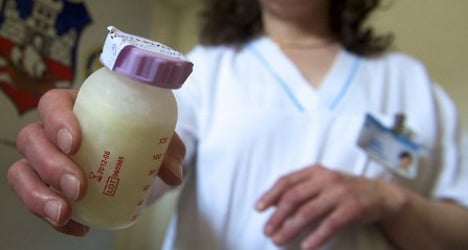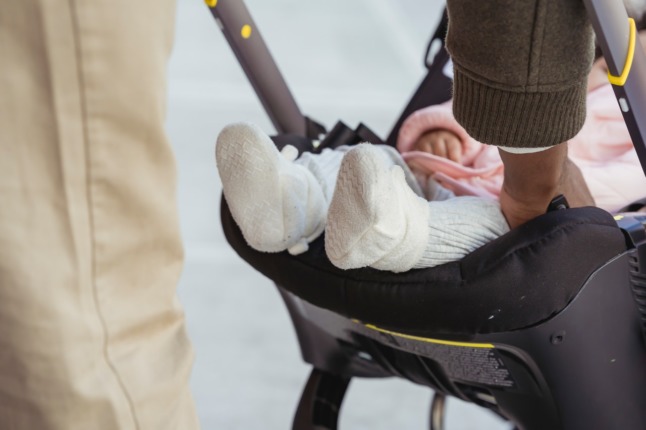The 2012 State of the World's Mothers report from NGO Save The Children has highlighted failures in Spanish efforts to encourage breastfeeding of newborns, awarding it a score of 7.4 and placing it near the bottom of the table.
By the time they leave hospital, 76 percent of Spanish mothers are breastfeeding their babies but the number still doing so drops to just 44 percent after three months.
This compares unfavourably with other low birthrate countries such as Austria, where some 93 percent of mothers breastfeed straight away and 60 percent are still doing so after three months.
What is your experience of breastfeeding in Spain? Write in and let us know.
Norway tops the table with a score of 9.8 thanks to a 99 percent initial breastfeeding rate and 70 percent continuation after three months.
A link has been drawn between countries with generous periods of maternity leave and successful, ongoing breastfeeding.
Countries rated lower than Spain include the UK, Japan, Israel, Canada, Australia and the United States.
The president of the National Association of Mothers, María Ángeles Rodríguez, said that despite "a huge effort" to encourage breastfeeding, "the reality is that it's hard to balance it with work, and formula milk is very easy to buy".
Advertising formula milk and bottles for babies less than six months old, as well as providing free samples, has been illegal in Spain since 2008.
But many experts believe that new mothers still feel the effects of marketing from milk manufacturers.
Spain's system requires urgent overhaul in terms of hospital policies and professional training of medical staff, according to national daily ABC.
Paediatrician Jesús Martín Calama, coordinator in Spain of the Baby Friendly Hospital Initiative (BFHI), said: "It has been shown that there are a number of routines that can benefit breastfeeding in hospitals but it's not easy to introduce them because they involve significant changes."
Only 16 Spanish hospitals (3 percent) are fully accredited as "Baby Friendly" while 29 others are in the accreditation process.
Chus Marcos, breastfeeding coach from "The Milk League", noted that mothers "tend to take the word of health professionals and don't argue with them."
Anna Kemp, a British resident of Spain, who has had three babies in Madrid, told The Local that the experience varied greatly from hospital to hospital.
"I had my first baby in Moncloa, the state hospital, where babies were taken away at night and given formula milk."
"Having said that, I never felt under any pressure to bottle-feed."
She added: "I had the second one next door in Hospital Clínico and ended up in a tiny maternity ward with a good midwife, where I was allowed to hold the baby as soon as she was born and breastfeed her there and then".
Kemp, who runs an Open-Air theatre project in the Alpujarra mountains, explained that she had her third child in "the avant-garde, state-of-the-art" Maternidad de O'Donnell where her experience was also very positive.



 Please whitelist us to continue reading.
Please whitelist us to continue reading.
Member comments